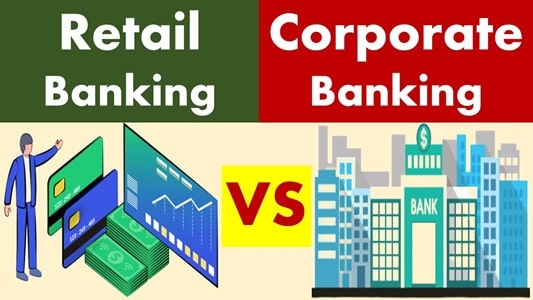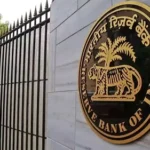If you know just a little bit about how banks function and what kind of services they offer, then you’ll not have a hard time differentiating retail and corporate banking. But still, if you are a little confused about these two then worry not, we are here to make things a whole lot easier by explaining what exactly retail banking as well as corporate banking is. Not just that though, we are here to get down and actually talk about the difference between retail and corporate banking, and not just one or two differences, we’ll go over the most important and all the possible ones. If that’s what you are here for, you know, to learn a little bit more about these two types of banking options, then you’re already off to a better start by clicking on this post. So yes, let’s get going now, shall we?
What Is Retail Banking?
As you may have guessed already, indeed, retail banking is the one that the majority of us encounter on a near-daily basis. Consumer banking, which focuses on providing a wide range of financial services directly to consumers and small businesses, is another name for this banking. So, what’s here for us, the customers? Well, with this one, you can choose from a wide variety of financial products and services, including standard checking and savings accounts, specialized loans to help fund your goals, mortgages, credit cards, and even high-end investment alternatives like IRAs and CDs. All in all, to manage our money on a daily basis, retail banks are basically super important.
And What About Corporate Banking?
Switching gears to corporate banking, this is actually where the big players roam, you know? Large corporations, small and medium-sized businesses (SMEs), institutional clients, and even government entities are the target market for this type of banking, which is also known as business banking. Simply put, business operations, expansion, and long-term objectives are the main focus of this banking division. That means this type of banking is not for the average bank customer or the general public. Corporate banks are serious about meeting the enormous financial demands of businesses. And yes, they do this by providing a comprehensive range of services that are strictly put out there for the biggest players.
Key Differences Between Retail and Corporate Banking

1. Who They Serve
Retail banking? It’s all about regular people like you and me, right? They treat both individuals and small companies like royalty and offer a wide range of services to help with everything from daily tasks to planning for your financial future down the line. Sounds cliche but yes, it’s like a one-stop shop for all of your money needs. Now, switch the roles and go to corporate banking. This is where the big players come in. These are companies of all sizes, from new ones just starting out to well-known giants. They are treated like VIPs and get all kinds of special cash gifts to help them meet their complicated, high-dollar needs, you know?
2. What They Offer
A savings or checking account, a personal loan, a credit card, and even some investment treats like CDs and IRAs are all common in retail banking. It’s like the basic menu that has everything you could want when it comes to money. Business banking aka corporate banking, on the other hand, is like the dessert plate for high-net-worth individuals or businesses. Heavy-duty services like corporate loans, project financing, and fancy foreign exchange services are what they come up with. It’s designed to keep corporate operations running easily and the money coming in.
3. Risk Talk
This is where things get hot. A lot of deals happen in retail banking, but each one is pretty small. If you add up all the risks, even though each one is small, they sure add up. But corporate banking is just a bit different when compared. How exactly? They do fewer deals, but the ones they do are bigger and more complicated. It has a lot at stake and a lot at risk, but if you make the right moves, it can pay off big too.
4. Keeping Relationships
In retail banking, you deal with people in person at a bank. They’re all about making you feel at home and giving you ease, whether you’re stopping by a branch or tapping away on your app. They want to keep you as a customer for a long time by giving you good help and good services. That’s all! Corporate banking though? It’s like having a financially wise person with you, all the time. It’s not so much about the daily chatter as it is about building strong, long-term relationships. They’re the smart people who help big companies make smart investments.
5. Making Money
Both retail and corporate banking have different rules when it comes to cash. Retail banks get their money from a lot of small deals, or “little wins.” There are a lot of them, but it’s not the most profitable game. But what about corporate banks? They’re missing fewer targets but hitting bigger ones. That’s what they do: they offer customized, high-value services that really make them money in the long term. These people are experts in money and know how to make big plans pay off.
6. Lending the Funds
And lastly, let’s start with an interesting but really simple question: do you need a house, a car, or money for school? Well, in retail banking, they’ll take care of you, but there is a limit to keep things small. Corporate banks are the big lenders that give out big loans for big business moves. We’re talking about pooled loans and big project loans that can go through the roof, way beyond what you’d find at your local bank branch.
Conclusion
All in all, the names of these two banking options or services itself are a differentiating factor that lets you know what they’re all about. Anyway, we hope that we did a good job of explaining what retail banking as well as corporate banking means and what are the key differences between these two. Alright, we’ll meet you in the next one then.



















